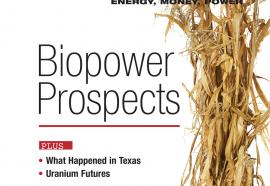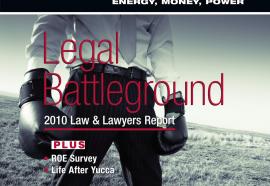Battle Lines:
2011 Groundbreaking Law & Lawyers Survey and Report
With a flurry of major new environmental regulations, the Environmental Protection Agency (EPA) is altering the power generation landscape. But will the new federal rules survive court challenges—to say nothing of next year’s national elections? Fortnightly's Michael T. Burr considers the controversy over new environmental standards. PLUS: Top Utility Lawyers of 2011.










